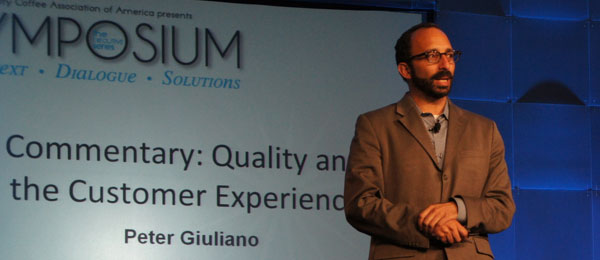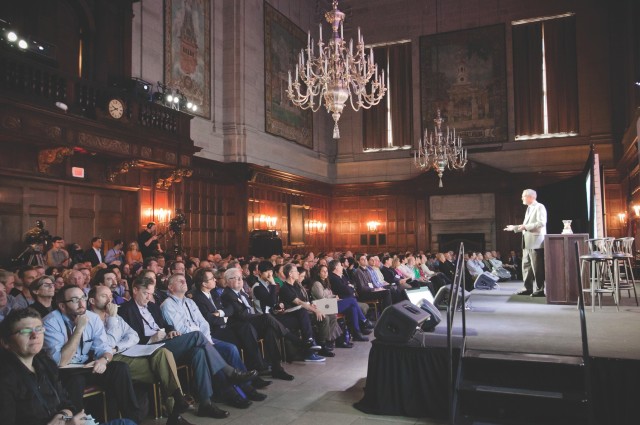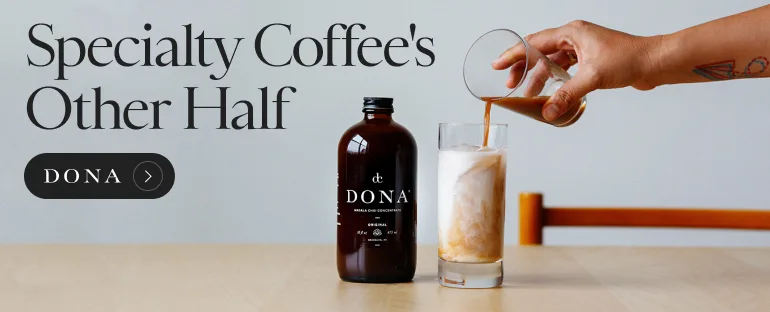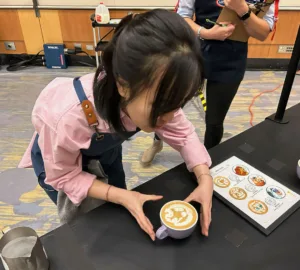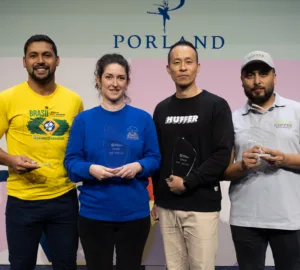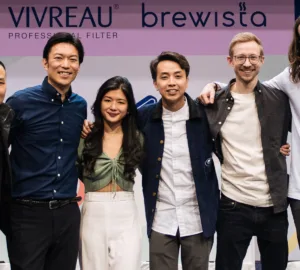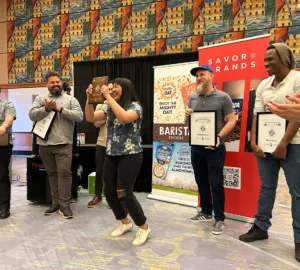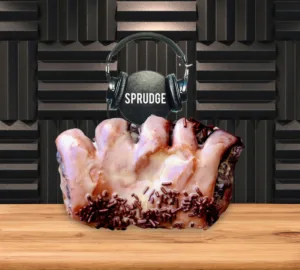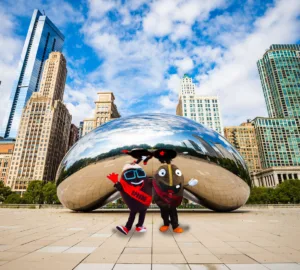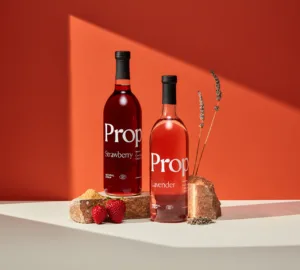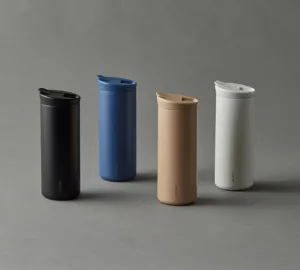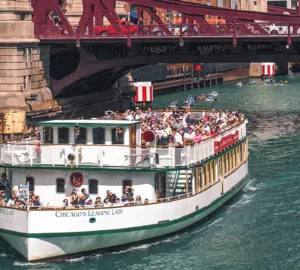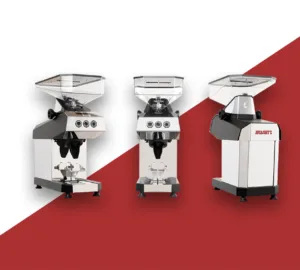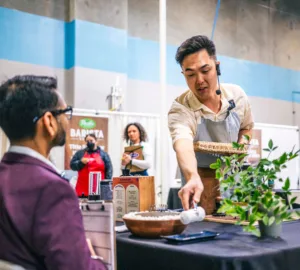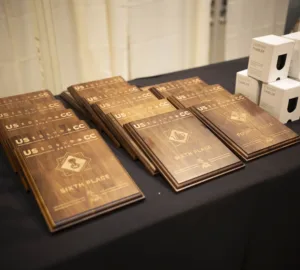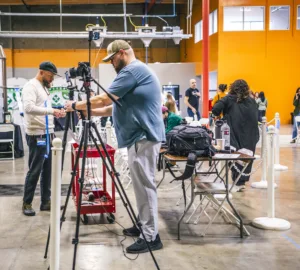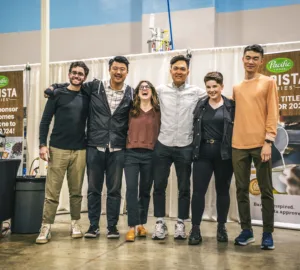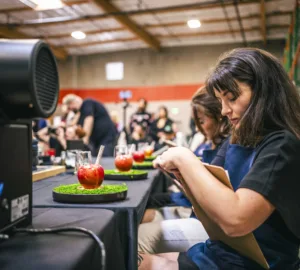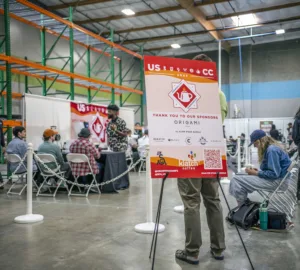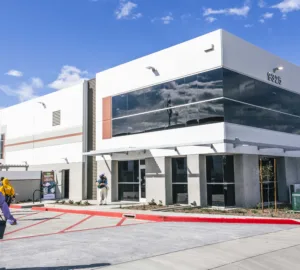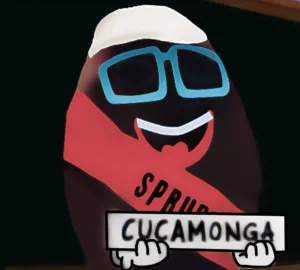Starting next week the attentions of the coffee world turn to the city of Seattle, home of the 2014 SCAA Event and the 2014 United States Barista Championship. But before those events get underway, the Speciality Coffee Association of America will host its 6th annual SCAA Symposium event. This event has been one of the premiere gatherings of coffee thinkers and committed leaders since it’s inception, functioning as a valubale exchange of intellectual and practical ideas about coffee. A small (and rapidly dwindling) selection of tickets are still available.
This year’s Symposium is all about the final touch point in coffee’s journey from raw cherry to delicious cup of wonder. To that end, the team at Symposium are presenting a learned panel of speakers from around the world who can speak to cafe and consumer issues, the science of how we understand taste, the history and future of the modern cafe space, and an in-depth look at the role milk plays in the daily lives of baristas and cafe owners around the world.
We’ve been attending and covering Symposium events since 2011, and this year, two representatives of Sprudge will be directly participating. Sprudge.com assistant editor Alex Bernson is one of this year’s featured speakers, and Sprudge co-founder Zachary Carlsen will be hosting a break-out “salon” session on the second day of the event.
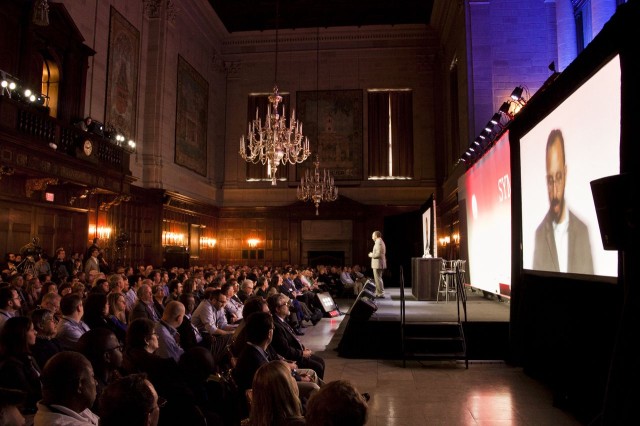
To learn more about what attendees can expect, and what makes this event so special, we sat down with Peter Giuliano, Director of Symposium at the SCAA and a longtime friend of this publication. With Symposium just a week away, Mr. Giuliano still managed to be generous with his time, as we discussed the upcoming event, his vision of who Symposium is for, and the role this event now plays in the wake of Nordic Barista Cup’s indefinite hiatus.
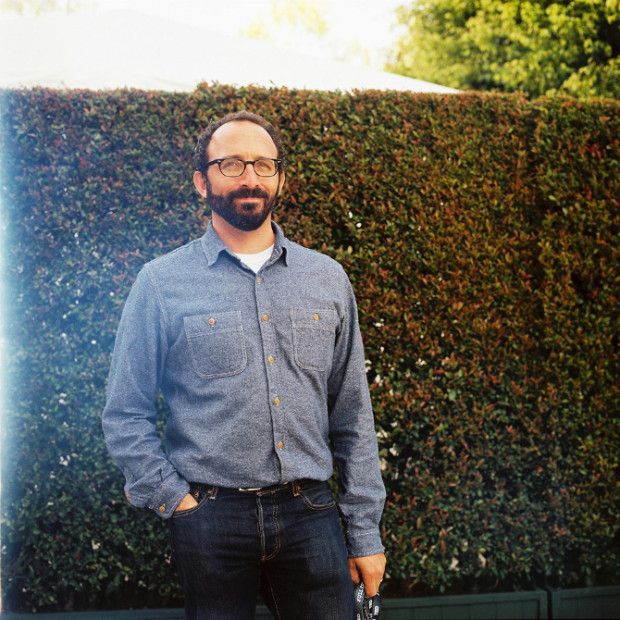
Peter Giuliano, thanks for speaking with us today. We’re so excited for Symposium next week — give us a 500 foot overview of the range of topics and your vision for this event.
This year, the proposition for Symposium is to look at things that we haven’t really taken a focus on, or focused our energy on formally over the last decade. We’ve formally worked a lot on cupping, direct trade, working with farmers – we’ve looked at a lot of research focused on agriculture and trade.
This year’s Symposium is our look at the last part of the chain, which determines the value for the rest of it. None of the farming, importing, or trade stuff matters at all unless it matters to the person who puts it in their mouth. At the end of the day we’re not selling coffee, we’re selling an experience. We want to look at multi-faceted final experiences of speciality coffee — tasting it, the places that you taste it, and the way that a lot of our customers consume it, which is with milk.
At Symposium we’ll have an exploration of the coffee space, the history and the anthropology of it, as well as the current state of the art for the coffee space. From there we’ll talk about the sensory space, and not just the experimental stuff, but there’s a project underway with Texas A&M and Kansas State Universities to develop a new technique for evaluating coffee flavor, and it’s designed for use in developing high quality coffee varieties. If we’re developing new coffee varieties they need a technique that works for research purposes — cupping is great for a coffee buyer, but it does not perform well for research purposes. There’s this new thing called sensory spectrum tasting and we’re going to talk about that — the inventor of this system is named Gail Civille, and she’s kind of a rockstar in sensory sciences. She basically founded this technique that now all of food science uses to evaluate quality and flavor for research purposes, and right now World Coffee Reserach is applying this thing to coffee. She’ll be giving us the low down on how that works and why.
From there it’s a whole morning dedicated to milk science, dairy sustainability, the dairy chain, etc — we’ll have a bunch of different milks to taste, different milks from different farms, and then we’re revisiting the rust issue. Last year rust was such a dominant topic, so we wanted to circle back with one of our former speakers from last year. He made some predictions last year and we’re going to check back in with that, and see what the impacts have been and see what’s coming for the next couple of years.
Who are three speakers you’re most excited about?
Vida Asrina, because she is kind of completely out of left field. Here’s this woman who is using coffee spaces in Banda Aceh, a remote capital in Northern Sumatra that was destroyed by a tsunami 10 years ago. She recognized that coffee shops were the perfect node in the community to be used as innovation hubs for urban development. Which is amazing, right? It’s totally consistent with the history of coffee shops culturally. We all recognize that coffee shops are really important places for communities in North America and Europe, but we don’t think of them as being important in places like Banda Aceh — it’s remote, and one of the most muslim communities in the world where historically only men went to coffee shops. Part of Vida’s work is to make coffee shops into progressive spaces for urban development. That’s unusual and very cool.
Dr. Charles Spence, who is a professor from Oxford who studies multi-modal and crossmodal sensory experiences. The idea is that what you see and hear and touch affects what you taste and smell. It just does. We like to think of those sense as independent of each other, but they’re not, and there’s actually a science around how they’re not. If you’re looking at a color while tasting food, it changes how it tastes. Some people might dismiss that as a trick of the mind, but it doesn’t matter – perception is all that matters with coffee. It’s a flavor experience, so if the color of the cup or the music being played in the coffee shop affects the flavor of coffee, that matters. And Professor Spence is one of the leaders for studying that. He’s well-known for working with molecular gastronomy folks at restaurants like El Bulli, doing experiments with them on how audio can change how you eat, like listening to the ocean while eating fishy foods. Experimental modernist cuisine molecular gastronomy stuff. That’s one that I’m especially excited about.
Thom Huppertz is our milk expert. The milk thing is really interesting, and there’s a lot of enthusiasm about all that. I feel like a lot of coffee people, and especially baristas, know a little bit about milk, but not many of us know a lot about milk. So Thom Huppertz is coming in from the Netherlands, and he’s done a lot of work on the science of foaming, how fats get involved in foams, and why there’s a perceivable difference that homogenization has on the flavor and texture of milk. Thom Huppertz studies milk foams — that’s all this guy does — and he’s going to be talking about how milk foams work in the coffee context, and even some ways to optimize how we’re using milk with coffee.
This year’s Symposium also features what you’re calling “salons” — explain what that will look like.
An 18 minute lecture style works really well, but what we were missing last year was a little bit of guided interaction around the talks. Last year it was like you got to consume so much but you never got to talk about it. So we’re going to put a period at the end of Day 2, where all the speakers will go to their respective topic groups — all the dairy guys will be together, and the sensory science guys will be together, which can include people from the audience asking questions, maybe a little debate or something like that around these topics. There’s a little bit more involvement from the attendees as opposed to just being audience members. There’ll be 5 of these salons happening, and Symposium attendees can go visit over the course of the middle of Day 2.
In addition to the salons, which is a change from last year, the 2014 Symposium is noticeably less focused on coffee growing and agronomy. Talk to us about the intentionality behind that decision.
Last year was so much about agriculture, and you know, origin — and that’s been by the way historically true, we at Symposium pay a lot of attention to origin, as we should. That’s where things start. I do think that sometimes, I’ve definitely heard it from cafe owner type people, who say, “wait a second — we’re always talking about the issue the producer has, but the people on the other end of the chain are important too.” The sustainability of the retailer — that’s important too, and it’s part of who we are as well. And you know what I’ve found? Producers, people from origin countries, are really just as interested in learning about our end of the chain as we are in theirs. And also, to be good business people, if you’re going to be in the coffee business, you need to know about all aspects of the coffee business. So this will be the segment of the coffee business we’re exploring this year.
We know that sensory science stuff is happening right now, and that a better understanding of milk science is happening right now…I want Symposium to give attendees knowledge of what they’ll need to succeed in coffee in the next 5 years. Origin is part of that, but so is this end of the chain stuff. There’s this emerging thing about the coffee space being important, experimental coffee shops emerging, all this excitement about the Modbar and coffee experience design, and not just flavor. These things are just bubbling up right now — it’s really about shining a light on them.
Who is this event for?
It’s for the committed coffee professional. If coffee is your career — and you know that you’re a coffee person, you’ve invested your career in coffee — that’s who we design the Symposium for. It’s not really for somebody who’s coming to the event to kind of check it out because, y’know, they just opened a cafe. It’s probably not for them. It’s definitely for people who run coffee shops professionally, or taste coffee professionally, or run a coffee businesses professionally. It’s for people who’ve made a commitment — a financial commitment, a lifetime commitment — to coffee.
People come together at Symposium from all different disciplines: researchers, scientists, shop owners, roasters, so much more . It’s become a place where committed coffee leaders get to to interact with each other and decide what’s important.
With the announcement of no Nordic Barista Cup in 2014, does that change the context for your event this year? Does that amp up the meaning of Symposium?
Well look — we’re very proud of what Symposium has come to symbolize in coffee. We were the first event to do this kind of stuff, to take leadership and science and this sort of committed coffee profesional idea seriously, and build an event around it. And it is so cool that the sentiment for that sort of thing… to watch the parallel expressions of these concepts emerge over the years. I’ve been an admirer of what NBC has done over the past few years, and the leaders at the NBC have always been involved in Symposium (as audience members). There’s a lot of kinship.
I know that this year we’ll see a ton of activity from Europe — James Hoffmann, for example, has been a core member of the Symposium community for many years — but in terms of NBC making the decision they made, it’s not going to impact our event at all. We knew as of last year our event was going to be full and we would be turning away people because of space. What that means is the coffee industry globally is ready for this kind of approach. Call it “coffee enlightenment” or “coffee intellectualism” or whatever, but I think that’s really cool. What international involvement does is it brings an incredible energy to this event, and Symposium 2014 has extensive international involvement not only from the speaker side but the participant side as well. People from Latin America, Asia, Europe…. everyone comes to this thing. And that’s great, because that’s how we think of it: a global summit for coffee leaders.













